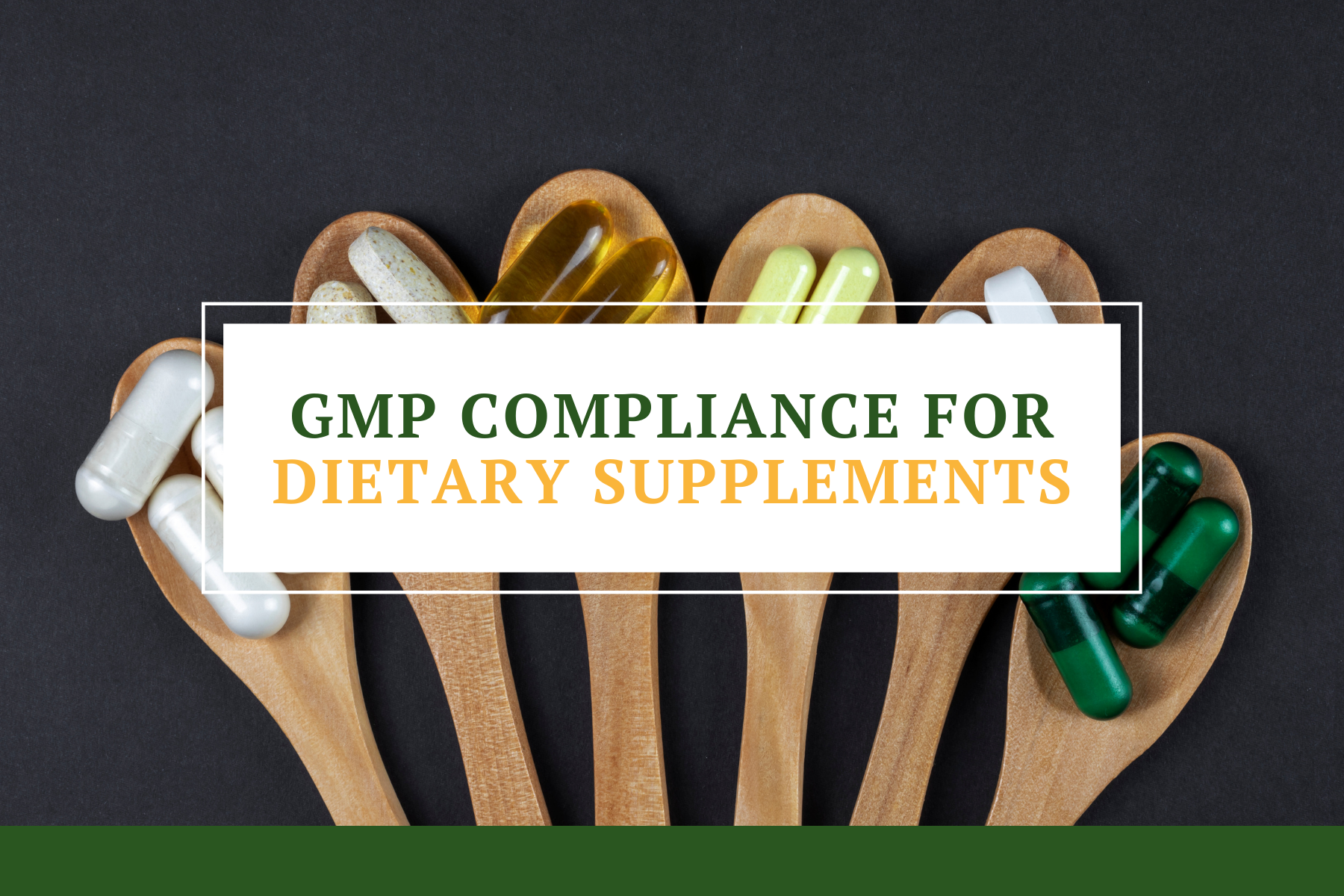What Are GMP Audits?
Good Manufacturing Practice (GMP) audits are structured evaluations of how dietary-supplement manufacturers follow the U.S. Food and Drug Administration (FDA) quality standards.
These standards—outlined in 21 CFR Part 111—ensure that supplements are produced consistently, safely, and accurately labeled, from raw materials through finished packaging.
Why 21 CFR Part 111 Matters for Supplements
21 CFR Part 111 establishes the current Good Manufacturing Practices (cGMPs) required for dietary supplements.
It protects consumers and brands by helping prevent:
- Ingredient contamination or adulteration
- Mislabeling or inaccurate dosage statements
- Poor recordkeeping or traceability issues
Following these rules shows responsibility, quality control, and transparency—three foundations of consumer trust.
What a GMP Audit Covers: 7 Core Areas
Each GMP audit examines multiple pillars of quality management.
Here's what auditors typically review:
1. Quality Management System (QMS)
Auditors confirm written procedures for every step—from material testing to equipment cleaning—and verify that staff follow them.
A compliant QMS defines training, corrective actions, and document control.
2. Personnel Training and Hygiene
Employees must be trained for their roles and maintain hygienic practices. Training logs and personal-hygiene policies are checked for compliance.
3. Raw-Material Control
Every ingredient must be qualified, tested, and approved before use. Supplier qualifications and identity testing help prevent substitution or contamination.
4. Manufacturing Operations
Auditors observe blending, encapsulation, and packaging to ensure batch-record accuracy, equipment calibration, and in-process verification.
5. Packaging and Labeling
Labels must be truthful and compliant with FDA structure/function rules—no disease claims, full disclosure of contents, and proper serving information.
6. Laboratory Testing
Independent or in-house laboratories confirm identity, purity, strength, and composition for each production lot.
7. Recordkeeping and Documentation
Batch records, deviation logs, and distribution files must be complete and accessible for recall traceability or regulatory review.
Internal vs. External GMP Audits
| Audit Type | Who Performs It | Primary Purpose |
|---|---|---|
| Internal Audit | Conducted by company quality staff | Detects gaps before FDA inspection |
| External (Third-Party) Audit | Performed by certified GMP auditors | Provides objective verification and market credibility |
Third-party audits (such as NSF or UL) validate compliance and allow facilities to display GMP certification seals, giving retailers and consumers additional confidence.
GMP Audit Frequency and Preparation Tips
The FDA may inspect any registered facility at any time, but proactive manufacturers schedule internal reviews annually and independent audits every 1–2 years.
Preparation checklist:
- Confirm all SOPs reflect current operations.
- Review supplier documentation and COAs.
- Retrain staff on cGMP responsibilities.
- Maintain batch records for at least one year past shelf life.
- Document corrective actions from previous audits.
Common GMP Audit Findings to Avoid
- Incomplete batch production records
- Missing raw-material identity tests
- Outdated or missing SOPs
- Lack of employee training records
- Unverified equipment cleaning or calibration logs
A solid Corrective and Preventive Action (CAPA) system demonstrates that any finding is addressed and tracked for closure.
Benefits of Passing a GMP Audit
- Regulatory assurance: Verifies FDA compliance with 21 CFR Part 111.
- Consumer trust: Signals clean production and traceability.
- Retail readiness: Many distributors require certified facilities.
- Operational efficiency: Improves consistency and reduces waste.
- Brand credibility: Strengthens reputation in a crowded market.
Nourishing Nutrients' Commitment to GMP Quality
At Nourishing Nutrients, every product is produced only in facilities that are GMP-certified under 21 CFR Part 111 and audited by qualified third-party bodies.
We partner exclusively with manufacturers that maintain active certification, robust documentation, and transparent quality systems.
This ensures that every batch of our supplements meets the same high standards for purity, potency, and safety—from sourcing to shipment.
Key Takeaways
- 21 CFR Part 111 defines the federal GMP framework for supplements.
- Audits confirm compliance across manufacturing, labeling, and recordkeeping.
- Certified facilities demonstrate proven quality and consumer safety.
- Nourishing Nutrients partners only with GMP-certified manufacturers, guaranteeing every product meets rigorous quality expectations.
Disclaimer
This content is for educational purposes only and does not provide medical, legal, or regulatory advice.
Statements have not been evaluated by the Food and Drug Administration.
Products mentioned are not intended to diagnose, treat, cure, or prevent any disease.
Always consult qualified compliance or regulatory professionals regarding GMP implementation.



